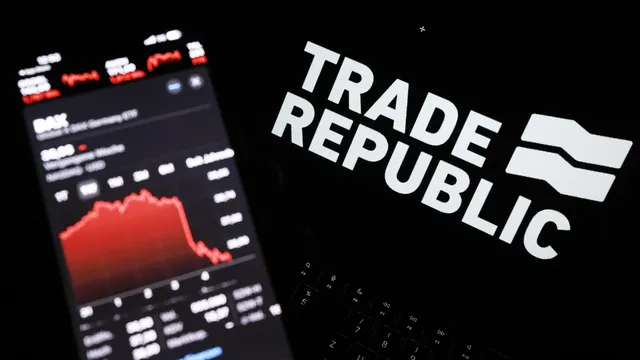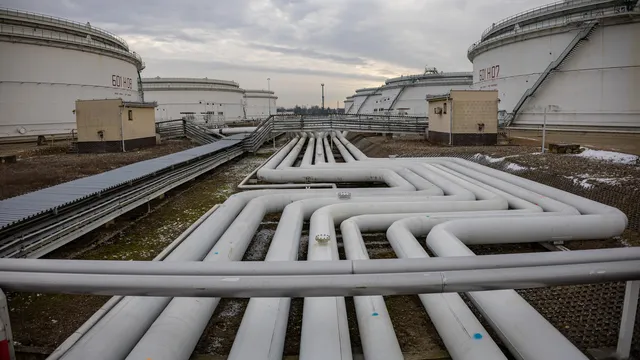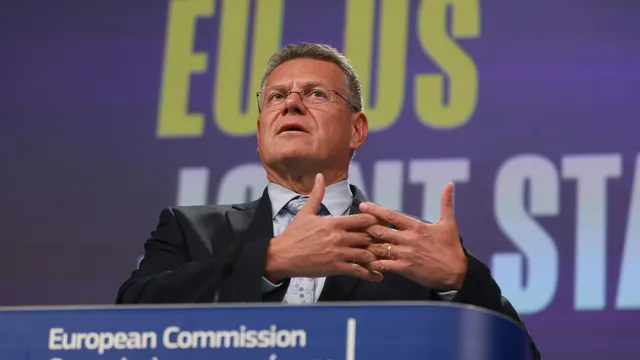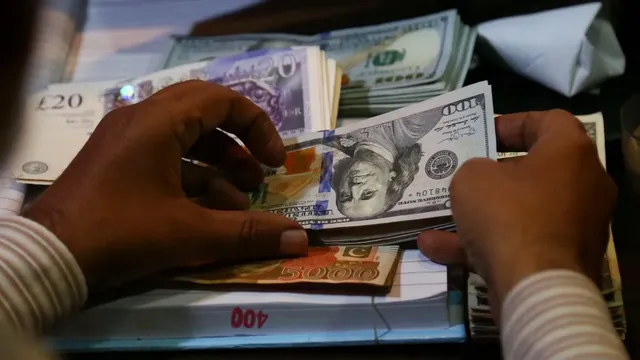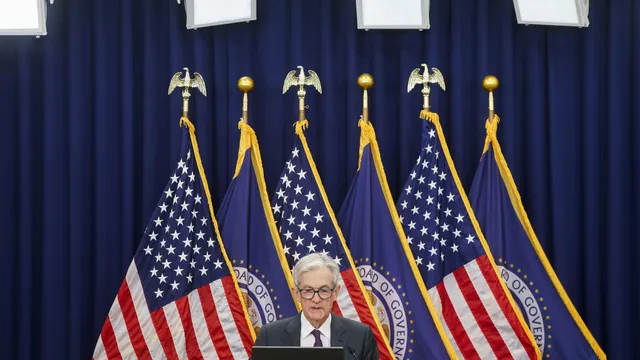In the manufacturing sector, sentiment improved significantly, with expectations becoming considerably less cautious. Companies also assessed their current situation more favorably, although orders declined slightly. Business confidence also rose in the service sector.
Business sentiment in Germany rebounded strongly in March, supported by renewed momentum in the manufacturing sector and expectations of fiscal stimulus measures that will improve the economic outlook, EuroNews reported.
The ifo business climate index rose to 86.7 in March, its highest level in seven months, from 85.3 in February, broadly in line with expectations.
The improvement was evenly distributed between current assessments and future expectations. The ifo expectations index, a closely watched barometer of sentiment, rose to 87.7, marking an eight-month high.
The ifo index of the current situation rose from 85.6 in February to 87.7 in March, also in line with forecasts.
"The mood among companies in Germany has improved," said Clemens Fuest, president of the ifo institute.
"Companies are more satisfied with their current business situation and their expectations have risen significantly. German companies are hoping for a recovery," he added.
In the manufacturing sector, sentiment improved significantly, with expectations becoming considerably less cautious. Companies also assessed their current situation more favorably, although orders declined slightly. Business confidence also rose in the service sector. Companies expressed more positive outlooks and a more clearly expressed sense of optimism, especially among architectural and engineering firms.
In trade, sentiment strengthened again. Traders were less pessimistic about future prospects and assessed their current business situation more positively. In the construction sector, sentiment was more optimistic. Companies had a slightly better view of current conditions and expectations improved, although skepticism remains high. However, the ongoing shortage of orders continues to weigh heavily on the sector.
Manufacturing leads the recovery
On Monday (21 April), encouraging signs emerged from S&P Global's Purchasing Managers' Index (PMI), which showed that overall business activity in Germany grew at its fastest pace in ten months.
Germany's composite manufacturing index rose to 50.9 in March from 50.4 in February, its highest level since May 2024. The increase was driven by a sharp recovery in manufacturing, which recorded its strongest growth in three years, with the manufacturing sub-index reaching 52.1.
This is the first sustained increase in manufacturing since the beginning of 2022. Stronger domestic demand and efforts by customers to replenish their inventories are cited as the main factors. New orders in manufacturing increased, albeit moderately, for the first time in two years.
"Manufacturers increased production for the first time in almost two years," said Dr. Cyrus de la Rubia, chief economist at Hamburg Commercial Bank. He noted that Germany's recently approved €500 billion plan for investment in infrastructure and defense is helping to restore business confidence.
"This could mark the beginning of a more sustainable recovery," de la Rubia added, warning that US tariff policy and weak performance in the services sector remain potential obstacles.
Services lose momentum
While the manufacturing sector showed clear signs of recovery, the services sector slowed down.
The PMI index for services fell to 50.2, indicating near stagnation and the weakest performance in four months. New orders in the sector fell sharply, and service providers struggled to pass on higher costs through price increases.
However, sentiment in both sectors improved, with companies reporting greater optimism about production in the coming months. Analysts attribute some of the improved sentiment to the expected impact of Germany's fiscal stimulus package, which should support infrastructure projects and potentially revive demand in both manufacturing and services.
DAX rises after Trump softens stance on tariffs
Markets reacted positively to the improvement in sentiment. The DAX index rose 0.8% in morning trading, buoyed by global optimism after US President Donald Trump hinted at a softer approach to upcoming tariffs.
At a White House briefing, Trump announced that "many countries" could receive tariff exemptions and added that not all tariffs would take effect on April 2. He noted that US tariffs would continue to apply to certain sectors, including timber, automobiles, and pharmaceutical products.
Bayer AG shares rose 4%, leading DAX gains, followed by BMW AG (+1.6%) and Deutsche Börse (+1.5%). Sartorius AG and Siemens AG posted weaker results, falling 2.4% and 1.7%, respectively.
Elsewhere in Europe, the Euro STOXX 50 rose 0.4%, Italy's FTSE MIB rose 0.8%, and Spain's IBEX 35 gained 0.9%. The Euro STOXX Bank index rose 0.5%, supported by a 2.3% rise in Crédit Agricole and a 1.8% rise in ABN Amro. | BGNES

 Breaking news
Breaking news
 Europe
Europe
 Bulgaria
Bulgaria
